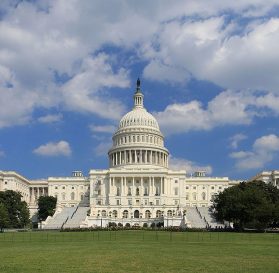Michael Wood | How Retirement Cut Proposals Will Affect Federal Workers

Article by Michael Wood
MICHAEL WOOD –
There is much debate regarding the difference in working conditions between federal and private sector employees. On the one hand, private-sector employees think federal employees enjoy better benefits. Why is that so? Over the years, private sector employers have reduced their employee benefits. On the other hand, federal benefit packages are challenging to maintain. However, federal employees’ base salaries are lower than those of private sector employees. In turn, this creates the need for federal benefits to offset differences.
Recent White House proposals threatened to reduce federal employee benefits. This letter, from the director of the US Office of Personnel Management, details the proposed measures. These measures target federal employees enrolled in the Civil Service Retirement (CSRS)and FederalEmployees Retirement System (FERS). The goal of these measures is to reduce budget deficits. Already, pay freezes and compensation adjustments to affect federal employee benefits which are less than those of private sector employees are. Below are four possible measures that might be implemented.

Increases in Benefits Contributions

In the past, private companies offered retirement benefits that require no employee contributions. Even so, most employees prefer 401(k) retirement plans as it gives them greater control over their future. In contrast, public sector retirement plans require recurring contributions. Today, a majority of employees in FERS remit 0.8% of their salaries and3.1% or 4.4% if hired after 2012.
Under this proposal, FERS contributions will hike with one percentage point and a ceiling of 7.25% of base pay. This is equivalent to 14.5% of total pension similar to SocialSecurity’s 50/50 allocation of contributions between employees and employers. Paying an additional 6.45% of base pay necessitates pay cuts with no significant change in benefit payouts. Over the next ten years, this will slash deficits by $69 billion and more beyond this period.
Longer Pension Calculation Duration
Currently, FERS and CSRS benefits are computed using an average of the highest annual pay over a period of three years. Typically, this is derived late in an employee’s career when salaries are highest. The proposed law will increase this period to five years. An increase in the calculation period reduces the average as well as initial payouts lasting throughout retirement. Essentially, these proposals attempt to mimic how Social Security uses an employee’s 35-year history to compute pensions. All the same, private sector pensions follow rules similar to the public sector. Implementing this measure will save the Fed $6 billion over the next ten years.


Reductions in COLA Benefits
Similar to Social Security’s COLA benefits for retirees, federal pension benefits increase about inflation. Growing payouts in this way offset increases in the cost of living expenses.
The proposed new laws will reduce CSRS COLA benefits by 0.5% as well as wholly eliminate them from the FERS. This will translate to reductions of $50 billion in the next ten years and onwards.
No Supplemental Annuities
FERS supplemental annuities require that an employee quit service before age 62 and enroll in Social security. Supplemental annuities help determine what an employee’s corresponding Social Security benefits will be. However, proposed measures will eliminate these benefits saving the federal government $19 billion in the next decade.


Final Thoughts
Though the White House can only make suggestions, it cannot enact these measures. Given that, it’s obliged to provide direction regarding these proposals. As calls to reduce budget deficits increase, it is possible that Congress will deliberate on these and other proposals. However, federal employees will oppose these measures strongly, though if they are implemented they certainly will have to endure the cuts.
Michael Wood
Michael Wood is the principal and owner of Integrity Retirement Planning, LLC with offices located in Cambridge, Maryland. Michael began his career in Insurance and Financial Services with Bankers Life and Casualty in 1999 where he practiced insurance until 2002 at which time he started his own company.










